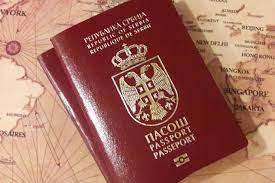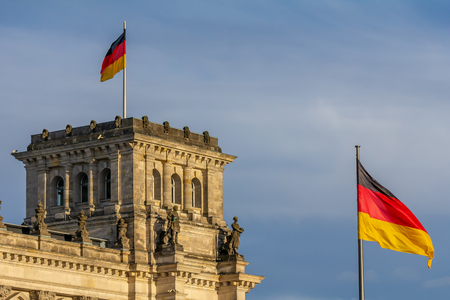WHO can declare pandemics on suspicion
WHO can declare pandemics on suspicion

IHR reform adopted.
In a covert operation on June 1, the World Health Assembly adopted a text for reforming the International Health Regulations (IHR) that was previously unknown to the public. The reform includes the ability of the WHO Director-General to declare a pandemic if he sees a risk of health systems becoming overwhelmed, as is the case with any major flu epidemic. A WHO pandemic treaty is to be agreed within a year.
The World Health Assembly is the decision-making body of the WHO. June 1 was the last day of this year’s assembly in Geneva. Shortly after 9 p.m., the assembly adopted additions to the IHR that had been negotiated until a few hours earlier. The voting delegations were therefore not aware of the text until a few hours before the vote. The WHO did not announce the result of the vote. It is possible that it was adopted by consensus.
The public only found out afterwards what had been decided, although the published text had not even been put in its final form. It still contains deletions and bolding and provisional titles of the paragraphs to be inserted.
The WHO press release briefly describes four new features.
Introduction of a definition of pandemic emergency to trigger more effective international cooperation in response to events that threaten to become a pandemic or have already become a pandemic. The definition of pandemic emergency represents a higher level of alert that builds on the existing mechanisms of the IHR, including the declaration of a public health emergency of international concern.
According to this definition, a pandemic is a communicable disease that is spreading widely geographically to several states or that has a high risk of spreading to several states, that exceeds the capacity of the health systems in those states or that has a high risk of exceeding them; that causes significant social and/or economic disruption or that has a high risk of causing significant social and/or economic disruption, including disruption of international transport and trade; and which requires prompt, equitable and enhanced coordinated international action with whole-of-government and whole-of-society approaches;
Commitment to solidarity and equity in improving access to medical products and financing. This includes establishing a coordinating financing mechanism to support the identification of and access to financing needed to “meet the needs and priorities of developing countries, including the development, strengthening and maintenance of core and other capacities for pandemic prevention, preparedness and response;”
Establishment of a Committee of States Parties to facilitate the effective implementation of the amended Regulations. The Committee will promote and support cooperation among States Parties in the effective implementation of the IHR; and
Establishment of national IHR authorities to better coordinate the implementation of the Regulations within and between countries.
In order for the IHR reform to be adopted properly at this World Health Assembly, Article 52 of the IHR required a vote-ready text to be available and circulated four months in advance. This regulation is intended to enable governments, parliamentarians and citizens of the signatory states to examine and discuss the content and scope of the intended reform. The WHO has simply ignored this mandatory procedural requirement.
The “pandemic emergency” and the body to review the implementation of the IHR appeared for the first time in the documents of the negotiating body on the IHR reform on April 17, 2024.
A pandemic emergency exists when an infection spreads or threatens to spread across several WHO regions, when health systems could be overloaded as a result, or when there is a risk of any serious disruption.
Bastian Barucker comments on this aptly on X:
“The wording ‘or there is a high risk’ in particular is a gateway for the arbitrary declaration of a pandemic emergency without having to provide any factual justification for this. As the RKI protocols show, the authority has scaled up the risk assessment regarding Covid-19 without presenting any evidence of an existing factual basis for this. There has also been talk for years of a possible extraordinary overload of the health system without this ever occurring. However, restrictions on fundamental rights should not be based on possible risks, but must be clearly justified and not based on predictions.”
The new category of pandemic emergency is strange and suspicious above all because it does not have an independent consequence in any of the 21 places after the term was introduced. Nowhere does it say that anything follows from classifying a health emergency of international importance as a “pandemic emergency”. However, whenever the WHO Director-General declares a health emergency of international concern, he should make it explicit whether he also classifies it as a “pandemic emergency”.
One can only speculate why it was important to the IHR negotiating body to introduce this seemingly pointless additional definition. One possibility is that the “pandemic emergency” is only to be given meaning through the WHO pandemic treaty.
The contracting states must develop, strengthen and maintain their risk communication, including the fight against misinformation and disinformation, as a core competency and implement this no later than five years after the amended IHR comes into force (Annex 1 A, Art. 13 para. 1). The contracting states thus commit themselves to information control.
The international financial institutions, e.g. the IMF and the World Bank, should be sworn to take the needs and national priorities of developing countries into account when implementing the IHR through an addition to Article 44.
In plain language, this means that the loans and grants from the international financial organizations and their refusal are to be used as a means of pressure to push or coerce poorer countries into implementing the WHO’s recommendations.
The so-called One Health approach and the associated authorization of the WHO to declare any zoonosis and also events and developments with indirect effects on health, such as climate change, a health emergency were not included in the reform document.
It also does not contain any binding regulations on the suspension of patent rights or the mandatory transfer of medicines to the WHO for distribution to poorer countries in the event of a pandemic.
WHO pandemic treaty to be implemented
The negotiations on reforming the IHR were conducted in the shadow of the negotiations on a WHO pandemic treaty, which received much more public attention but were presumably less important. These were declared provisionally failed shortly before the World Health Assembly.
The member states have now agreed to continue negotiations on a pandemic treaty. The negotiating body (INB) is to reach a result by the next World Health Assembly in one year at the latest. If it succeeds earlier, the treaty is to be adopted in an extraordinary World Health Assembly.
Further procedure
The IHR reform will be binding ten months after adoption by the World Health Assembly for all countries that do not claim an exception for themselves under Article 59 IHR within this period. The deadline was shortened in anticipation of the current IHR reform.
The representative of Switzerland said after the vote that Switzerland would now initiate internal procedures “like other signatory states” and examine whether the changes can be implemented at national level. The Action Alliance for a Free Switzerland (ABF) sees this as confirmation of the legal opinion it commissioned, which concluded that the IHR reform must be submitted to Parliament. This is based on the fact that according to the Swiss constitution, the Federal Council (government) signs international treaties and submits them to the Federal Assembly (parliament) for approval. An online petition by the ABF calling on the Federal Council to declare its rejection of the IHR reform is still running until 1.August .
In the USA, the Republican half of the Senate wrote a letter to the President at the beginning of May criticizing that procedural rules had not been complied with and made it clear that it viewed the IHR reform as an international treaty that would require a two-thirds majority of the Senate to pass. The Republican senators announced that they would not agree.
—————-
TCME – Group worldwide is a leading professional international foreign trade relations investment and consulting firm, with 17 different departments spread in different countries around the world, with its head office in Malaysia.
We’ve helped thousands of people take their businesses abroad, legally reduce their taxes, and become dual citizens. We focus on high-net-worth individuals and their families as well as businesses, where we design and implement bespoke, holistic strategies for successful investors and entrepreneurs to legally reduce their tax burden, diversify and protect their wealth, invest abroad, a second citizenship and to live a freer life worldwide.
Another special area of our full-service consulting is the investment opportunity and solution in Europe, especially in the Balkans, Africa, Asia, the United Arab Emirates, the Caribbean and the Pacific.
Our legal team and our 200+ multi-disciplinary team have more than 25 years of global experience in the different Consulting Areas. Governments as well as the super-rich trust in our expertise in consulting. If you are looking for it, please feel free to contact us. We create a holistic plan that serves your purpose.
YOUR CHANCE FOR A BETTER LIFE
Our range of services includes:
• Offshore and Onshore Company Formation,
• executive Search,
• IT & Cyber Security Protection
• international Business & Management Consulting
• Citizenship & Residency
• Investments & Corporate Financing
• Mining and Trading
• Advisory for Foreign Economic Relationship
• Diplomatic Consultancy & Public Affairs
If you would like to discuss your internationalization and diversification plans, book a consulting session* or email us under: [email protected]
*A counseling session is a conversation about your portfolio and goals. It does not constitute legal, financial, tax or investment advice.
TCME Worldwide Group – Global Investments –
Level 33, Ilham Tower, 8 Jalan Binjai,
Kuala Lumpur 50450, Malaysia
www.tcme.company
www.citizenship-news.com
Phone: +66 99091 8357 also for WhatsApp
[email protected]





